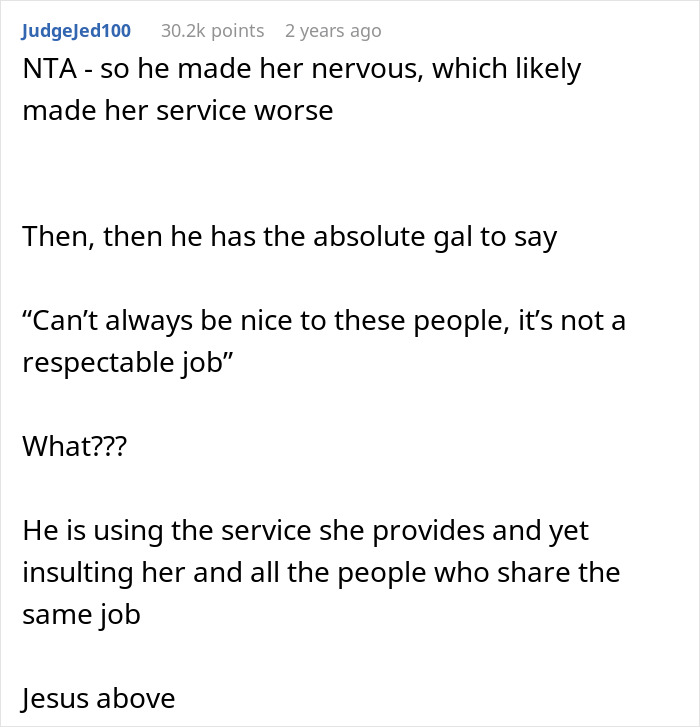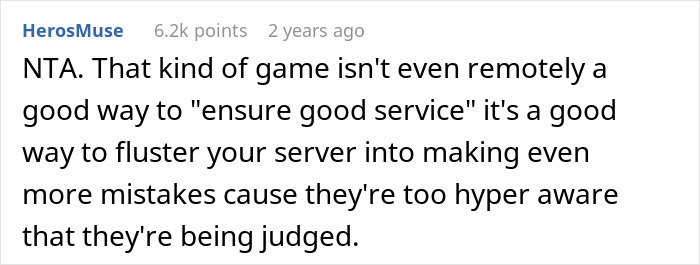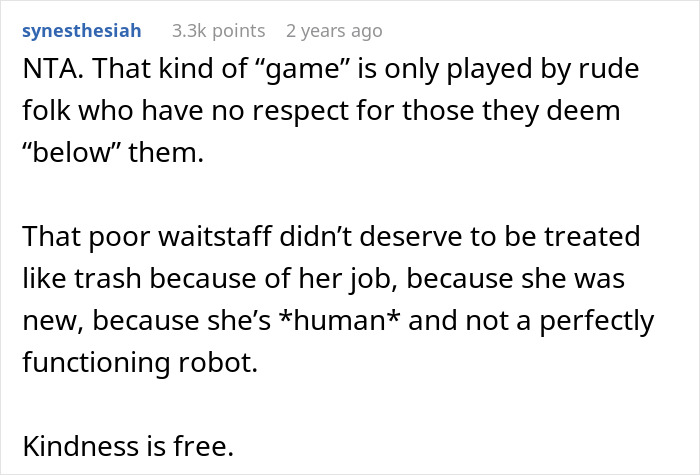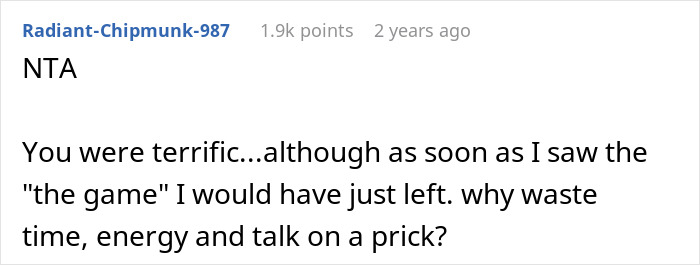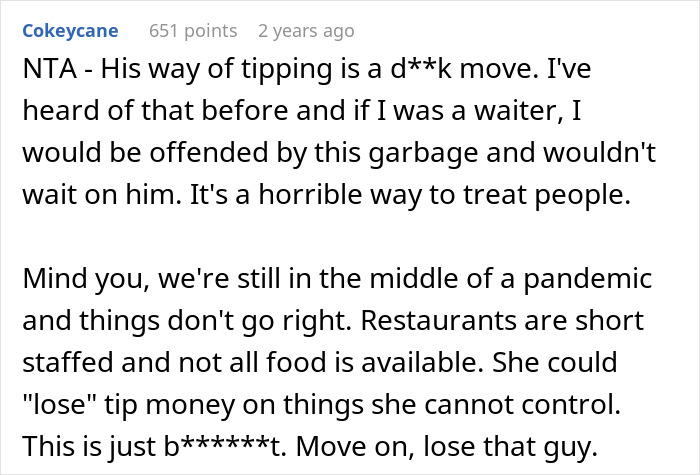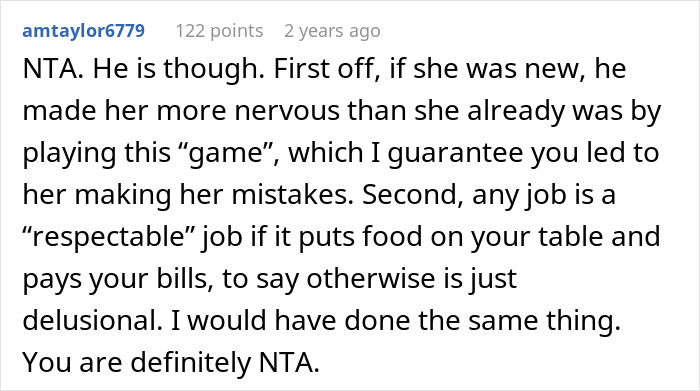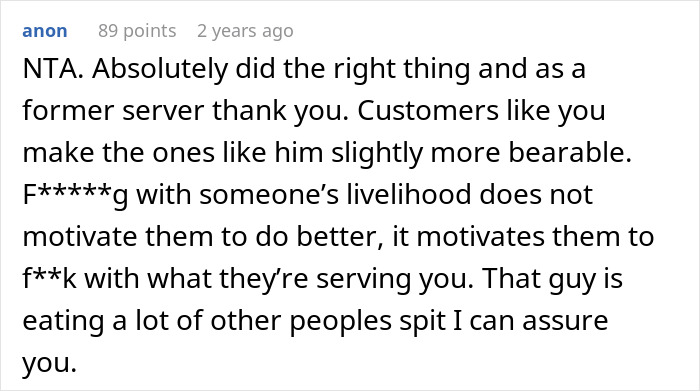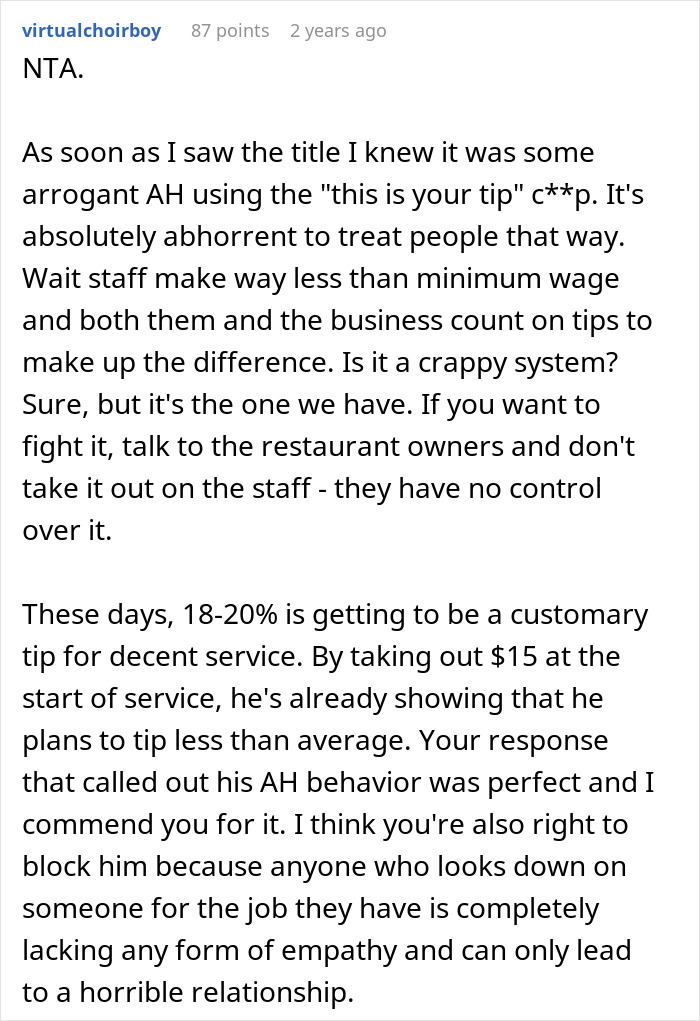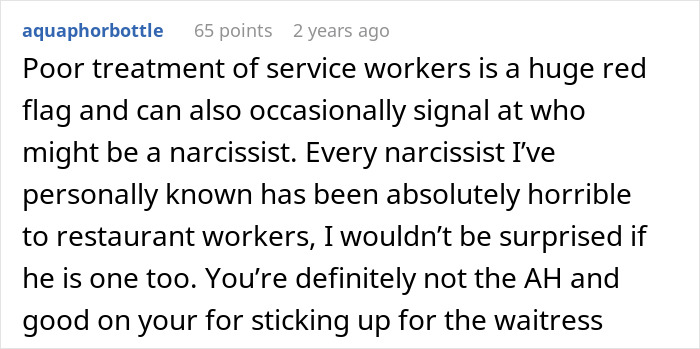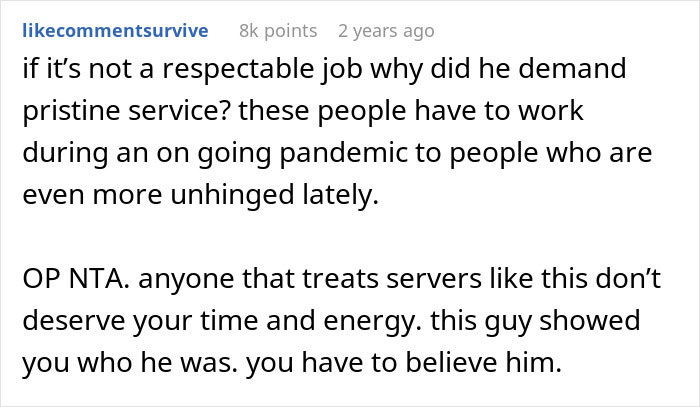There are certain behaviors that can tell you a lot about a person: how they treat animals, how they address their parents, whether or not they put pineapples on their pizza, and of course, how they treat service workers.
One person instantly noticed some red flags after going on a date with a man who decided to turn their server’s tip into a cruel game. Below, you’ll find the full story that was posted on the “Am I the [Jerk]?” subreddit, as well as some of the replies invested readers shared.
You can learn a lot about someone from how they choose to treat wait staff

Image credits: DragonImages/Envato elements (not the actual photo)
This person quickly realized they were incompatible with their date after seeing how he determined how much to tip their server
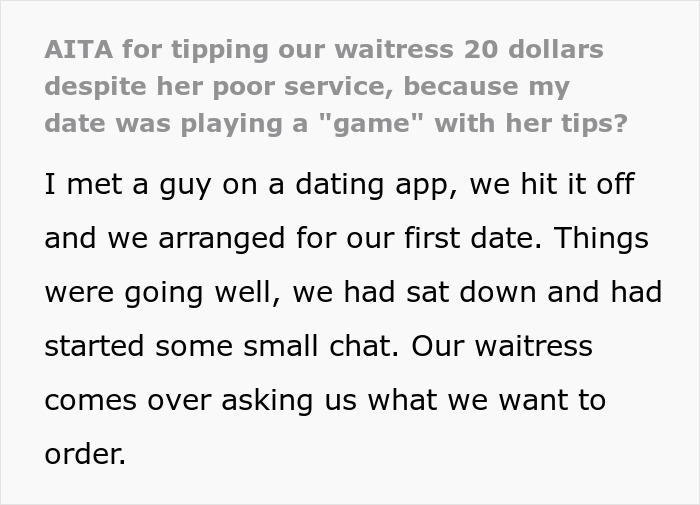
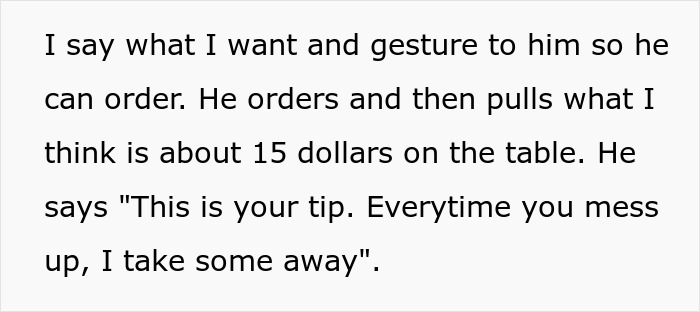
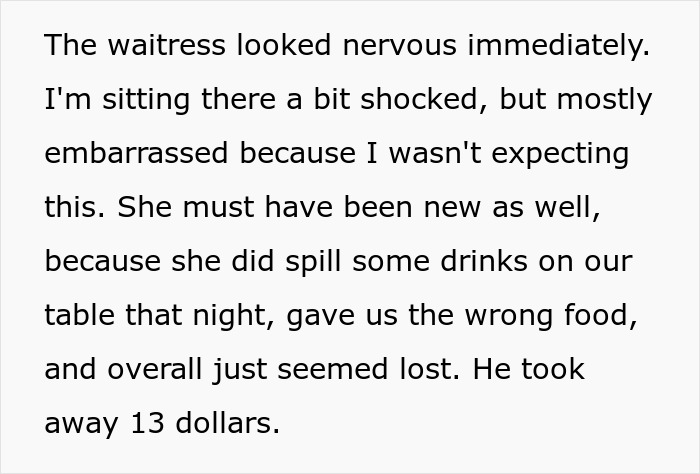
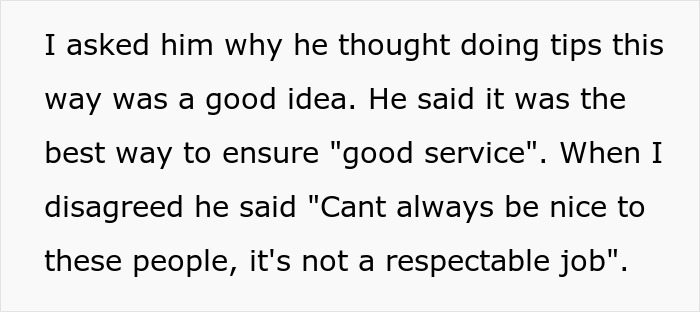
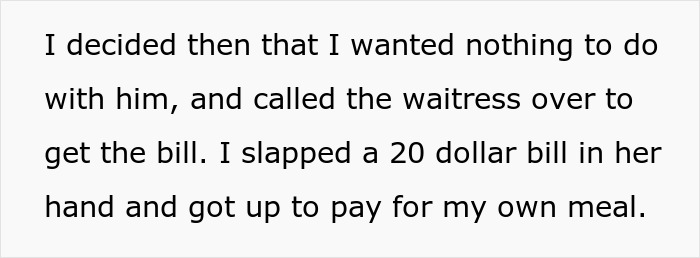
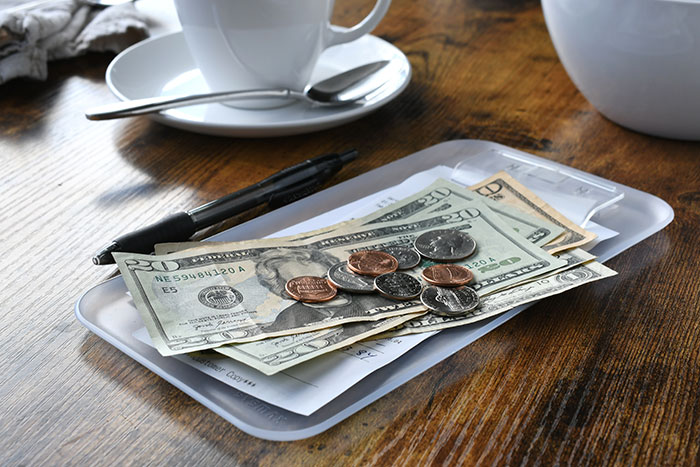
Image credits: MargJohnsonVA/Envato elements (not the actual photo)
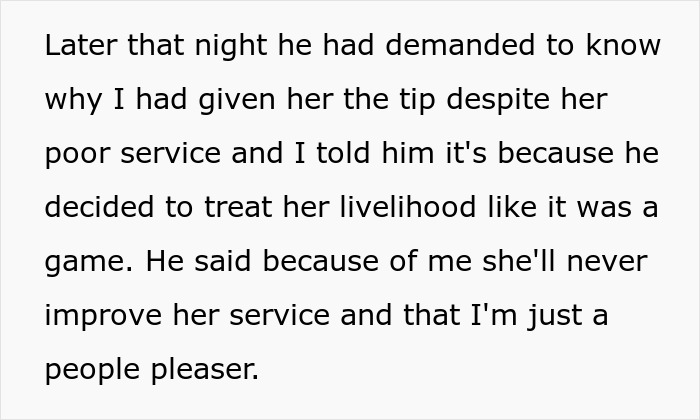
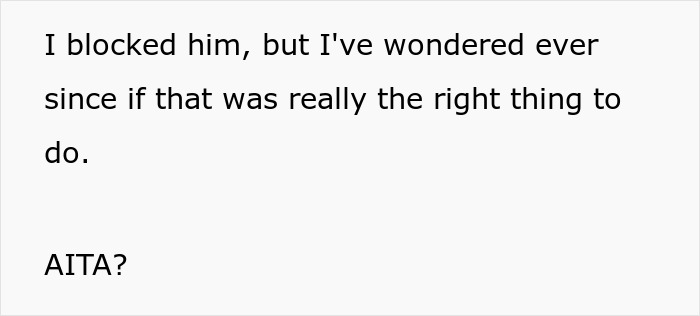
Image credits: throwaway000059
Working in a restaurant can be incredibly stressful

Image credits: Pressmaster/Envato elements (not the actual photo)
When you think of occupations that are extremely stressful, your mind might not immediately go to the food service industry. But if you’ve actually worked in a restaurant, you’ll know that it’s no piece of cake. Dealing with hangry customers who find a dozen new ways to complain every day, being pressured to work as quickly as possible and trying to force a smile to ensure that you earn enough tips to pay rent this month is a lot to juggle.
According to 1Huddle, the top stressors that those working in the restaurant industry face today are long and unpredictable hours, challenging customers, the physical demands of the job, the stress of the fast-paced environment and financial instability. Being on your feet all day isn’t easy for anyone, and it’s even harder when you’re being yelled at by diners and kitchen staff constantly.
In fact, one study found that waiting tables is often even more stressful than working in medicine or architecture. And the effects of this stress don’t simply disappear when employees clock out. Being in a high-stress environment can increase your blood pressure, and therefore increase your risk of having a stroke.
High-stress jobs can be detrimental to employees’ health

Image credits: Pixabay/Pexels (not the actual photo)
Stressful jobs also make employees more likely to engage in unhealthy coping mechanisms after hours, such as smoking, doing drugs or drinking alcohol, which can also negatively impact health. Addiction is a serious issue in the food service industry, as 17% of workers have been diagnosed with a substance abuse disorder, and over 19% report that they’ve used illicit drugs in the past month.
There’s absolutely no need for customers to add to the stress server’s experience, as they clearly already have enough on their plates. But unfortunately, for many in the restaurant industry, tips from patrons make up a significant part of their income. In the United States, the federal minimum wage for tipped employees is a measly $2.13.
This means that slapping on a smile and providing the best service possible is a necessity for most waiters. But earning huge tips is not always easy. According to a survey from Bankrate, only two thirds of diners say that they always tip when eating at a sit-down restaurant. At the same time, over half of Americans admit that they’re not really fans of tipping.
Whether customers like it or not, many servers rely on tips for their livelihood

Image credits: cottonbro studio/Pexels (not the actual photo)
35% believe that tipping culture has gotten out of hand. And 37% wish that business owners would simply pay their employees a living wage, so the responsibility wouldn’t fall on customers. In fact, 14% would be willing to pay higher prices just to do away with tipping completely. And one in 10 Americans admit that they’re not always sure exactly how to tip or how much to tip.
But regardless of your personal feelings about tipping culture, if you’re dining out in a country where you know the expectation is to tip between 15-20%, you should do so as well. Adam Reiner at Bon Appétit encourages patrons to stop viewing tipping as a burden or an option, as it’s a necessity for the livelihood of food service workers. He argues that, “When you don’t tip servers properly, you haven’t paid the true price of your meal.”
If you weren’t expected to leave a tip, your meal would undoubtedly cost more. And especially when you’re on a date, it’s wise to be on your best behavior and be an excellent tipper, as well as an empathetic customer.
We would love to hear your thoughts on this story in the comments below, pandas. Do you think this person was right to tip their server $20? Feel free to share, and then if you’re interested in checking out another Bored Panda piece discussing tipping drama, look no further than right here!
Readers assured the person that they had done nothing wrong and called out their date for his terrible behavior
